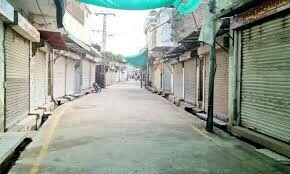ONCE again, it seems the electoral field is going to be a largely all-male spectacle. Now that tickets have been awarded for the May 11 polls, it’s clear that while political parties may court the female vote for its strategic value, they cannot bring themselves to consider women as viable candidates for general seats. The list of candidates for 272 National Assembly general seats includes only 36 women, a figure that has remained more or less unchanged since the last two elections in 2008 and 2002.
While religious parties such as the JI and the JUI-F have predictably bypassed women as potential candidates, one would have expected other mainstream parties to do better. The PPP has nominated 11 women on general seats, four less than in 2008. The MQM has given tickets to only seven female candidates, nominally more than in the last two elections and the ANP has merely two women in the running. The PML-N, with seven, has also scarcely improved upon its past performance, while the PML-Q’s tally has dropped from eight to four, although the party contends that this is on account of it having nominated fewer candidates overall. The PTI, whose campaign is predicated on the mantra of ‘change’, could only come up with five women among the 227 candidates to whom it has awarded tickets for the National Assembly. At this rate, the presence of women in the country’s premier house of representatives would have been little more than token had it not been for the 60 reserved seats for women, a quota that, ironically enough, was increased by a military-led government in 2002.
The last five years of democracy, although flawed in many ways, saw considerable pro-women legislation, an important step towards raising the status of women in a patriarchal social milieu. Female legislators also demonstrated initiative in parliamentary pro-ceedings, outperforming their male counterparts in many respects, a fact proved by statistical reviews of the outgoing parliament. To build on what they have achieved in terms of legislation, the political parties should have taken the lead in raising the profile of their women members instead of caving in to a conservative, risk-averse approach. A few women in some of the country’s most backward areas have challenged this mindset by standing for election as independents. It’s a pity that our political parties have not demonstrated the same courage and instead, on the threshold of a historic juncture, relegated women’s participation in the transition of power to the sidelines.













































